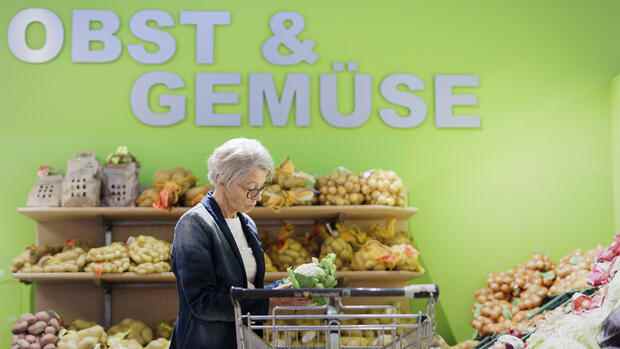Prices in the euro zone have recently risen sharply.
(Photo: IMAGO/photothek)
Frankfurt The inflation rate in the euro area continued to rise in August. Consumer prices increased by 9.1 percent compared to the same month last year. This was announced by the European statistical office Eurostat on Wednesday. This is the highest level since monetary union began. In July, inflation was 8.9 percent.
The high price pressure in the euro area is putting the European Central Bank (ECB) under pressure ahead of its meeting on Thursday next week. In the past few days, several central bankers have signaled their willingness to take a major interest rate hike.
Until recently, investors had expected the ECB to hike interest rates by 0.5 percentage points, as it did in July. In the meantime, many experts are even expecting a mega rate hike of 0.75 percentage points. In any case, the new figures should provide the supporters with further arguments.
This includes Bundesbank President Joachim Nagel. “For more and more people, the high inflation is becoming an enormous burden,” he comments on the record value. There is a risk that the phase of high inflation will last longer and that the current wave of inflation will only slowly subside.
“Therefore, there is an urgent need for the ECB Governing Council to act decisively at its next meeting to fight inflation,” Nagel said. “We need a strong interest rate hike in September.”
Top jobs of the day
Find the best jobs now and
be notified by email.
KfW Chief Economist: Trend reversal not yet in sight
The KfW chief economist Fritzi Köhler-Geib also calls for a consistent approach to combating inflation. A trend reversal is still a long way off. “The unabated rise in food and energy prices should push inflation in the euro area to over ten percent in the last few months of the year,” the economist expects.
Most recently, ECB Executive Board member Isabel Schnabel raised expectations of a large rate hike. In her speech at the conference in Jackson Hole, USA, on Saturday, she advocated that the central banks had to “act vigorously” in the current environment.
Dutch central bank governor Klaas Knot said on Tuesday that he was leaning towards a 0.75 percentage point rate hike. But he is open to discussions.
On September 8, the Central Bank Council will discuss the future course of monetary policy.
(Photo: dpa)
On the other hand, ECB chief economist Philip Lane urged caution. He is considered the most prominent advocate of loose monetary policy.
The economist spoke out in favor of a steady progress on the chosen course of interest rate hikes. “A steady pace — one that is neither too slow nor too fast — is important in closing the gap to the terminal rate for a number of reasons.”
More: Inflation in Germany rises to 7.9 percent – and is likely to remain high longer than expected
